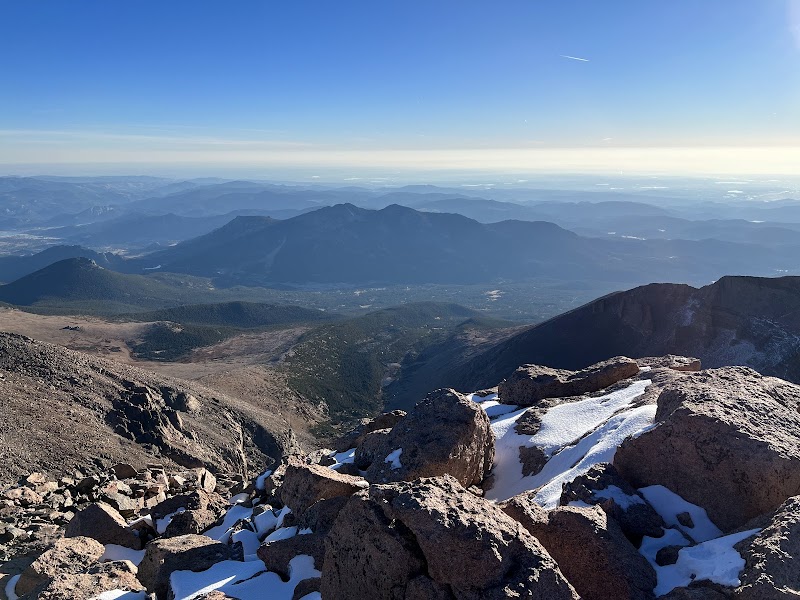
whitewater rafting near Boulder, Colorado
Experience the exhilarating rush of whitewater rafting near Boulder, Colorado, where nearby rivers offer everything from approachable currents to thrilling rapids. Discover how to plan your adventure, choose the right season, and connect with the wild spirit of the Rocky Mountains’ flowing waters.
Choose Your River Wisely
South Platte River is great for beginners and families; Arkansas River offers more technical rapids for experienced rafters. Research the difficulty before booking.
Wear Quick-Drying Clothing
Mountain rivers stay cold year-round. Use synthetic layers that dry quickly and protect against wind chill after wet sections.
Book Guided Trips
Professional guides know local current patterns and hazards, enhancing both safety and excitement. Avoid going solo if unfamiliar with the waters.
Hydrate and Fuel Up
Rafting demands energy and alertness—bring plenty of water and snacks to maintain stamina. Dehydration is common even in cool weather.
whitewater rafting near Boulder, Colorado
Ride the Rapids: Whitewater Rafting Near Boulder, Colorado
Whitewater rafting near Boulder, Colorado delivers a thrilling rush set against the dramatic backdrop of the Rocky Mountain foothills. While Boulder itself doesn’t offer intense river runs, several nearby rivers beckon adventure seekers ready to navigate roaring currents and crisp mountain water. Each river challenges you with its own personality, daring you to match its fierce pace and respect its unpredictable power.
The South Platte River, flowing about 30 minutes from Boulder, offers accessible rafting for beginners and intermediate paddlers. Its moderate rapids push forward with steady energy, perfect for groups dreaming of adrenaline without extreme technical demands. For a crisper, more intense experience, the Arkansas River—about two hours south—commands attention. It’s a world-class destination famed for Class III to V rapids that pull you through winding canyons, bubbling waves, and rocky obstacles.
Choosing a rafting adventure near Boulder, Colorado requires practical insight: timing your trip around seasonal water flows, selecting the right outfitter, and packing smart gear. Spring and early summer ramp up water levels thanks to snowmelt, producing powerful currents that demand vigilance. Summer offers warmer conditions and calmer stretches, ideal for families or first-timers. Regardless of season, water temperature stays cool, reminding rafters that layers and quick-drying clothing are essentials.
Local guides enhance the experience with safety expertise and intimate knowledge of these rivers’ quirks, from sudden drops to serene pools. They spot wildlife you might miss—the eagle soaring overhead, or the otter darting beneath the current. Beyond the river, attractions like hiking, fishing, and mountain biking surround raft launches, allowing adventurers to extend their day with Colorado’s raw beauty.
When you’re looking for whitewater rafting near Boulder, Colorado, plan on reliable outfitters within a short drive and routes that scale from introductory rapids to pulse-pounding whitewater beast. Above all, respect the river’s raw force—this isn’t a place for recklessness but for engagement with something fiercely itself. Pack your spirit of adventure alongside your gear, and you’ll find whitewater rafting around Boulder is more than a recreation—it's a challenge to meet nature on its terms.
For more information on the best adventures in Boulder, Colorado, explore our full listings featuring hiking, mountain biking trails, and other outdoor pursuits set to make your trip unforgettable.
Nearby Trips
All Adventures
Boat Charters
Water Activities
Adventures near Boulder, Colorado
Discover the unique and memorable adventures that make Boulder, Colorado special.
Frequently Asked Questions
Are there whitewater rafting opportunities directly in Boulder?
While Boulder’s immediate waterways are calm and not suited for whitewater rafting, several nearby rivers such as the South Platte and Arkansas Rivers provide excellent rafting adventures within a short drive.
What is the best time of year to go whitewater rafting near Boulder?
Late spring through early summer offers the most dynamic rapids due to snowmelt, but summer months provide warmer water and milder conditions suitable for beginners.
Do I need rafting experience to enjoy these rivers?
Beginners can enjoy guided trips on rivers like the South Platte, where rapids are moderate. However, more challenging rivers require prior rafting experience and a good level of fitness.
What safety precautions should I take?
Always wear a personal flotation device, listen closely to your guide, dress for cold water temperatures, and avoid rafting alone or in unsafe conditions.
Can children go whitewater rafting near Boulder?
Many outfitters offer family-friendly routes with mild rapids suitable for children age 8 and up, but check specific age restrictions with your chosen company.
Are pets allowed on rafting trips?
Most commercial rafting tours do not permit pets for safety and logistical reasons. It’s best to make separate arrangements for your pets.
Recommended Gear
Personal Flotation Device (PFD)
Critical safety equipment that must be worn at all times on the water to keep you afloat.
Waterproof dry bag
Protects valuables and electronics from splashes and accidental immersion.
Neoprene wetsuit or splash jacket
Provides insulation against the cold river water, especially during chillier months.
Sun protection gear
Sunglasses with straps, sunscreen, and UV-protective clothing shield you from strong mountain sun.
Local Insights
Hidden Gems
- "Ruby Hill rapids on the Arkansas River, known for thrilling drops less crowded than main runs"
- "Quiet eddy pools on South Platte where wildlife like bald eagles often rest"
Wildlife
- "Bald eagles soaring along river gorges"
- "River otters darting near rocky shores"
- "Beavers building dams along calmer sections"
History
"The rivers near Boulder were historic routes for Native American tribes and early explorers, with several sites showing ancestral significance along the riverbanks."
